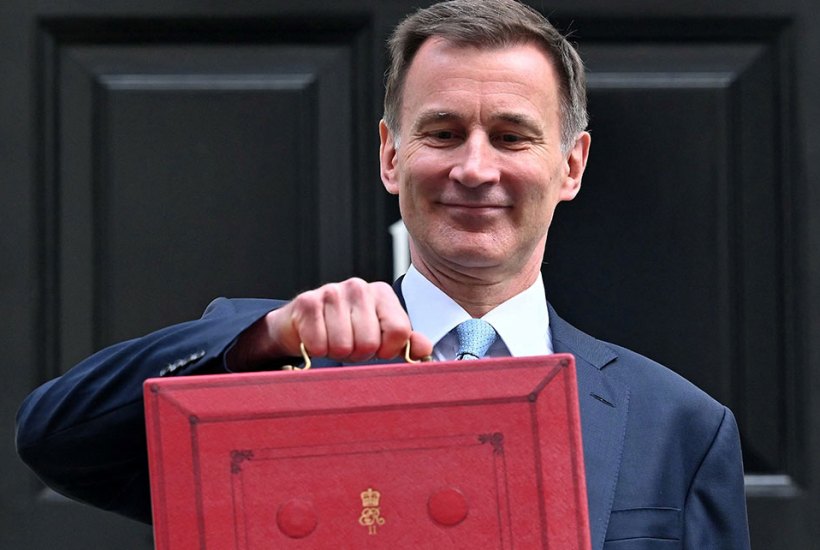Ahead of the Budget, Rishi Sunak and Jeremy Hunt met MPs for drinks in the Prime Minister’s parliamentary office to try to temper expectations. The Chancellor informed those present that, while he is a low-tax Conservative, he is not a magician. Yes, lots of MPs want him to slash taxes to revive the Tories’ standing in the polls, but he can’t escape reality.
Already a subscriber? Log in
Subscribe for just $2 a week
Try a month of The Spectator Australia absolutely free and without commitment. Not only that but – if you choose to continue – you’ll pay just $2 a week for your first year.
- Unlimited access to spectator.com.au and app
- The weekly edition on the Spectator Australia app
- Spectator podcasts and newsletters
- Full access to spectator.co.uk
Or
Unlock this article
You might disagree with half of it, but you’ll enjoy reading all of it. Try your first month for free, then just $2 a week for the remainder of your first year.









Comments
Don't miss out
Join the conversation with other Spectator Australia readers. Subscribe to leave a comment.
SUBSCRIBEAlready a subscriber? Log in